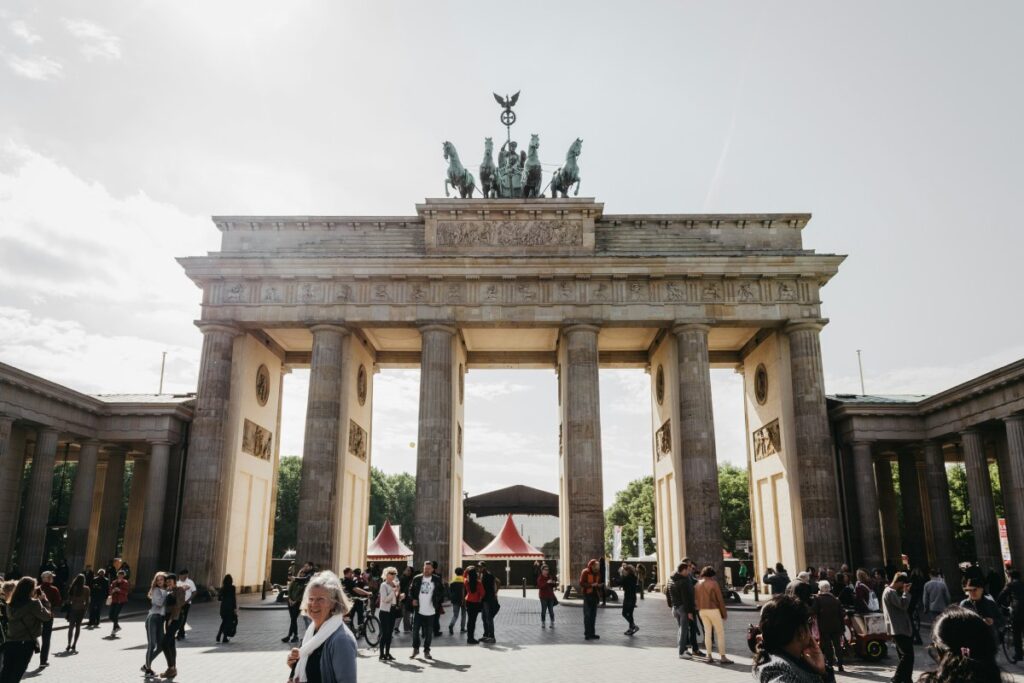skift take
Germany aims to set the future standard for AI in destination marketing. However, it is questionable whether Germany’s new AI influencers can actually build an audience and gain trust. These tasks are difficult even for humans.
Dawit Habtemariam
Tourists looking to explore Germany can look forward to help from the country’s first AI-generated travel influencer, which the German Tourism Board debuted on Thursday.
This AI, called “Emma,” is an interactive brand ambassador developed to inspire potential visitors. Emma is a blonde woman in her 30s who lives in Berlin and is passionate about travel.
“Emma’s look was purposefully designed so that she looked authentic and believable as a representative of Germany. Her style incorporates a mix of contemporary fashion and a nod to iconic German design. It combines a modern, cosmopolitan style with subtle references to the culture and architecture of Germany,” a German Tourism Board spokesperson told Skift.
Emma shares her travel videos, images and tips on her Instagram account @EmmaTravelsGermany. She has already started replying to comments on Instagram and having text conversations with travelers on the tourism board’s website. Emma speaks over 20 languages, is available 24/7, and uses advanced deep learning algorithms and large-scale language models.
Testing new technology
“With the launch of Emma as an AI influencer, we have taken our digital strategy one step further,” Tourism Agency CEO Petra Hedorfer said in a statement. “Starting from the inspiration stage in the customer journey, Emma can serve as an innovative bridge between potential travelers and an unforgettable and authentic experience in Germany.”
The German Tourism Board developed the project in cooperation with the agency Startup Creator.
In the long term, Germany Tourism envisions Emma to evolve from an information source to a personal travel companion that can provide users with personalized itineraries tailored to their personal tastes and interests.
Emma becomes brand ambassador
The German Tourism Board envisions Emma as Germany’s main representative in the tourism industry.
“She is able to partner with major hotel chains, airlines and travel agencies to offer special travel deals, experiences and discounts. Through partnerships like this, Emma can only become the face of German tourism. It will also become a global facilitator of unique travel experiences,” a board spokesperson said.
However, destination marketers in Germany may have to wait a little longer for technology to catch up to some extent with their full ambitions.
On launch day, her answer in Skift and Emma’s test chat was basic. When asked to suggest a day in Berlin, she suggested the following short and light itinerary. “In the evening, head to Prenzlauer Berg and explore Kastanienallee. For nightlife, head to Weserstrasse in Neukölln.
However, the tourism board said it was still in the early stages. Through continuous machine learning, Emma can respond to travelers’ emotional needs by providing empathetic responses and tailoring recommendations based on their mood and preferences, according to a spokesperson. He says it can be done.
By the end of the year, the AI assistant will not only have access to germany.travel information, but also real-time data from the tourism board’s open data project GNTB Knowledge Graph.
Replace humans with AI influencers
On Instagram, some interpreted Emma’s launch as Germany replacing human content creators.
“It’s definitely better to promote real people who actually exist and can form real opinions. There are a lot of travel creators who love Germany, have been there, and know the best destinations. People would rather listen and hear from real people. Good luck!” user wanderwithred wrote on Instagram.
Germany Tourism said on Instagram that there are no plans to replace human influencers as they create “genuine and emotional connections”, and that Emma “complements” and “enriches” their contributions. said.
The tourism board’s influencer network generated 148 million impressions on social media last year, the organization said.
Influencers usually have an established and interested audience. Destination marketing organizations pay influencers to help them reach their audiences.
The growth of AI in destination marketing
The new influencer project comes as countries increase investment in generative AI. Last week, American destination marketing organization Brand USA hired Janette Roush as its first chief AI officer. Rausch previously served as vice president of marketing and digital for New York City Tourism + Conventions.
In this new role, Roush will lead the organization’s AI strategy and innovation efforts and explore new avenues for Brand USA’s consumer promotions, trade and partner engagement.
The main goal for destinations is to use generative AI to replace generic top 10 lists and travel guides with personalized travel recommendations. “It’s never going to be a big bang moment, but things are slowly changing,” Barry Rogers, director of Dublin City Tourism, told ITB Berlin in March. “Suddenly you might see a Top 10 list or a Lonely Planet article, or suddenly AI could give you a personalized itinerary.”
Earlier this year, Dublin City Council and OpenAI announced a partnership to develop AI-powered itineraries.

